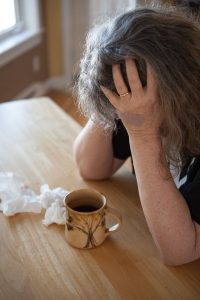





 Of course, part of the reason that we clergy may be reluctant to ask our people if they feel safe at home is that we are petrified about what we would do if they replied, “No.” After silently praying for wisdom and peace, we need to listen as we probe a little deeper to assess the risks. My long-time colleague at Gordon-Conwell, Dr. Kenneth Swetland, a trained pastoral counselor and an early advocate in mobilizing clergy to address domestic abuse, recommended using the easy-to-remember abbreviation FDIC –Frequency, Duration, Intensity, Complexity—to help assess risk: “How often have you not felt safe at home? Just once or on a regular basis?… When you don’t feel safe, is that an occasional feeling that comes and goes or a constant state of being?… What makes you feel unsafe? Verbal threats or expressions of hostility? Physical violence? Are weapons involved? Do you feel that your life is immediate danger?… Do you feel most unsafe when substance abuse occurs? Are others, particularly children, also unsafe in your home?…”
Of course, part of the reason that we clergy may be reluctant to ask our people if they feel safe at home is that we are petrified about what we would do if they replied, “No.” After silently praying for wisdom and peace, we need to listen as we probe a little deeper to assess the risks. My long-time colleague at Gordon-Conwell, Dr. Kenneth Swetland, a trained pastoral counselor and an early advocate in mobilizing clergy to address domestic abuse, recommended using the easy-to-remember abbreviation FDIC –Frequency, Duration, Intensity, Complexity—to help assess risk: “How often have you not felt safe at home? Just once or on a regular basis?… When you don’t feel safe, is that an occasional feeling that comes and goes or a constant state of being?… What makes you feel unsafe? Verbal threats or expressions of hostility? Physical violence? Are weapons involved? Do you feel that your life is immediate danger?… Do you feel most unsafe when substance abuse occurs? Are others, particularly children, also unsafe in your home?…”
Our response depends upon the levels of risk and of openness to act. Except at the highest levels of risk, we clergy need to resist forcing a course of action upon those in an abusive relationship. They don’t need one more person in authority making decisions for them. We need to try to use our authority to empower them to make their own decisions to seek God’s help in addressing their situation. Then we need to continue to pastor them regardless of what they decide or who else may be involved –praying for and with them, pointing them to Scripture that can make sense of their difficult and confusing context, and embodying the presence of Christ, their Good Shepherd.
If the risk or openness levels are low, then we can probably best empower them with information about abuse to help them understand their situation more clearly, to expose lies such as, “All husbands hit their wives. It’s just part of marriage. It’s how you know he really loves you.” I know of no better way to provide the most up-to-date, accessible, and helpful information than by introducing them to the Religion and Violence E-Learning or RAVE Project website (https://www.theraveproject.org/) and perhaps exploring it with them and assigning some of the on-line training.
At higher levels of risk or openness, referrals should be encouraged. Resist the temptation to be “Super-Pastor” who can solve any problem on our own. Domestic violence is a complex problem that demands a coordinated response from a variety of parties. Sometimes this will involve a shelter or the intervention of agencies such as Child and Family Services. If a minor is involved, then clergy are mandated reporters who have no choice but to involve such agencies. If someone indicates that they are in immediate danger of losing their life, then law enforcement should be called in.
As I have taught Doctor of Ministry students over the past decade or so since our program helped to field test the original RAVE Project, I have come to realize that one of the reasons we clergy have been reluctant to address domestic violence is our own sense of shame, guilt, and failure: “If I were a good pastor, there wouldn’t be any abuse in my church, so I don’t want to find out.” This is a classic case of false guilt getting in the way of true redemption. The reality is that abuse is the unwelcome guest in some of the homes in every pastor’s church. It has been in the churches I have served. I don’t think my physician is a bad doctor because I’m asked if I feel safe at home. Why should I or any other pastor think that about ourselves? Simply asking the question isn’t a cure-all, but it is a simple, straightforward, and effective way for us to care for our flocks, particularly for some of the weakest and most vulnerable members of the flock.
David Currie, 18 September 2019
This is the third and final post in a series written by David A. Currie, Dean of the Doctor of Ministry Program & Ockenga Institute and Professor of Pastoral Theology at Gordon-Conwell Theological Seminary.